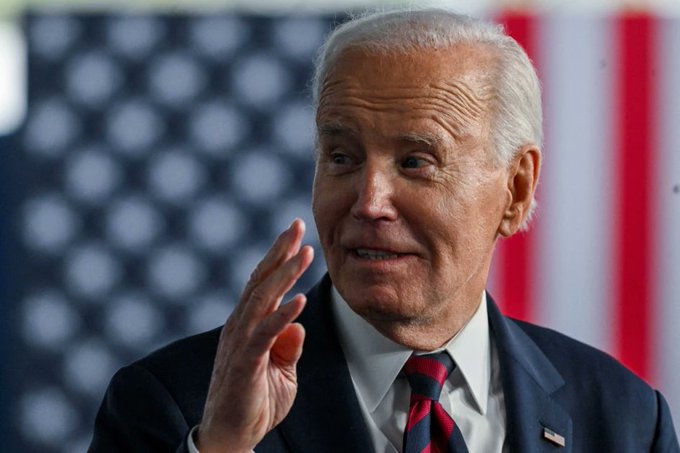In a remarkable move during his final hours in office, outgoing US President Joe Biden on Monday issued pre-emptive pardons to prominent figures, including former Covid-19 advisor Dr. Anthony Fauci and retired General Mark Milley.
The decision was aimed at protecting them from what Biden described as potential “politically motivated prosecutions” under the incoming administration of President Donald Trump.
Biden extended similar pardons to members, staff, and witnesses of the US House committee that investigated the January 6, 2021, attack on the Capitol, an event involving Trump supporters.
This unprecedented action highlights Biden’s concern over possible retaliatory legal actions under Trump’s leadership.
In a statement, Biden reaffirmed his commitment to the rule of law while acknowledging the unique circumstances prompting his decision.
“I believe in the rule of law, and I am optimistic that the strength of our legal institutions will ultimately prevail over politics,” Biden said.
“However, these are exceptional circumstances, and I cannot in good conscience remain passive.
These individuals have served our nation with honor and distinction and should not be subjected to baseless and politically motivated prosecutions.”
Trump’s Promises of Retribution
The pardons come as Trump prepares to take the oath of office as the 47th US president, having repeatedly vowed to seek “retribution” against his political adversaries.
He has openly threatened criminal prosecution for some, further fueling fears of targeted legal actions against those who opposed him during his previous term.
Dr. Fauci, who became a central figure in the fight against the Covid-19 pandemic during Trump’s first term, has faced fierce criticism from the right.
Among his detractors is billionaire Elon Musk, a vocal Trump ally, who has called for Fauci’s prosecution.
General Milley, who served as chairman of the Joint Chiefs of Staff, also became a target of Trump’s wrath after publicly criticizing the former president.
Milley had described Trump as “fascist to the core” and “a dangerous person” in comments to journalist Bob Woodward.
Milley also revealed that he made secret calls to his Chinese counterpart after the Capitol riots to assure Beijing of the United States’ stability and peaceful intentions.
Trump, enraged by Milley’s actions, wrote on his Truth Social platform that such conduct would have warranted “death” in earlier times.
Gratitude from Fauci and Milley
Reacting to the pardon, Milley expressed gratitude for Biden’s intervention, saying he wished to spend the remainder of his life free from unwarranted legal battles.
“I do not wish to spend whatever remaining time the Lord grants me fighting those who unjustly might seek retribution for perceived slights,” he said in a statement.
Dr. Fauci also reportedly thanked Biden but emphasized that he had done nothing wrong. “I have committed no crime,” Fauci was quoted as saying by US media.
Trump’s son, Donald Trump Jr., responded by urging Fauci to reject the pardon if he believed himself innocent.
January 6 Committee Members Included
Biden’s pardons extended to members of the bipartisan January 6 committee, including former Republican congresswoman Liz Cheney, a vocal Trump critic, and Democrat Adam Schiff, who is now a senator from California.
Schiff had previously expressed opposition to blanket pardons, saying in December, “I don’t think the idea of a blanket pardon of some kind is a good idea.”
Biden defended the pardons, stating that baseless investigations wreak havoc on the lives, safety, and financial security of those targeted and their families.
He clarified that the pardons should not be seen as an acknowledgment of wrongdoing nor as an admission of guilt by those receiving them.
A Final Wave of Clemencies
Biden’s final days in office have been marked by a series of pardons and clemencies. On the same day, he commuted the sentences of nearly 2,500 individuals and controversially pardoned his son, Hunter Biden. These actions add to the president’s legacy of using clemency powers extensively during his tenure.
Meanwhile, Trump has indicated plans to pardon some of the jailed individuals who participated in the Capitol riots, whom he has described as “patriots” and “political prisoners.”
The practice of issuing pre-emptive pardons is rare but not unprecedented.
One notable example occurred in 1974 when President Gerald Ford granted a pre-emptive pardon to his predecessor, Richard Nixon, following the Watergate scandal.
Biden’s extraordinary move underscores the heightened political tensions as Trump prepares to return to the White House.
The pardons reflect Biden’s belief in safeguarding public servants from undue persecution while leaving a contentious legacy for his successor to confront.
Join Kenyan Gen z and millennials official WhatsApp Channel To Stay Updated On time the ongoing situation https://whatsapp.com/channel/0029VaWT5gSGufImU8R0DO30
Tiktok – https://www.tiktok.com/@news.hub88?_t=ZM-8sz45qJid3V&_r=1


